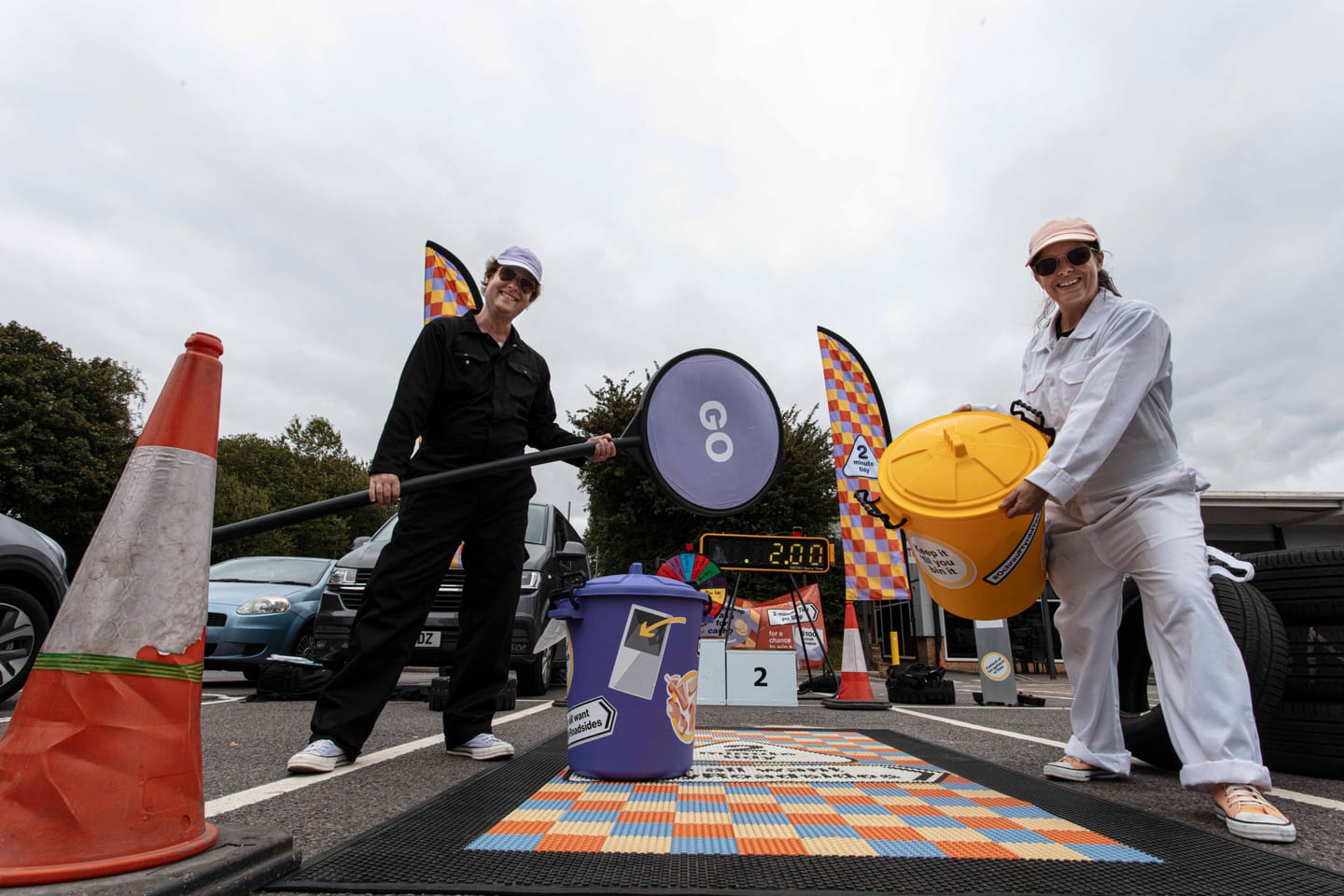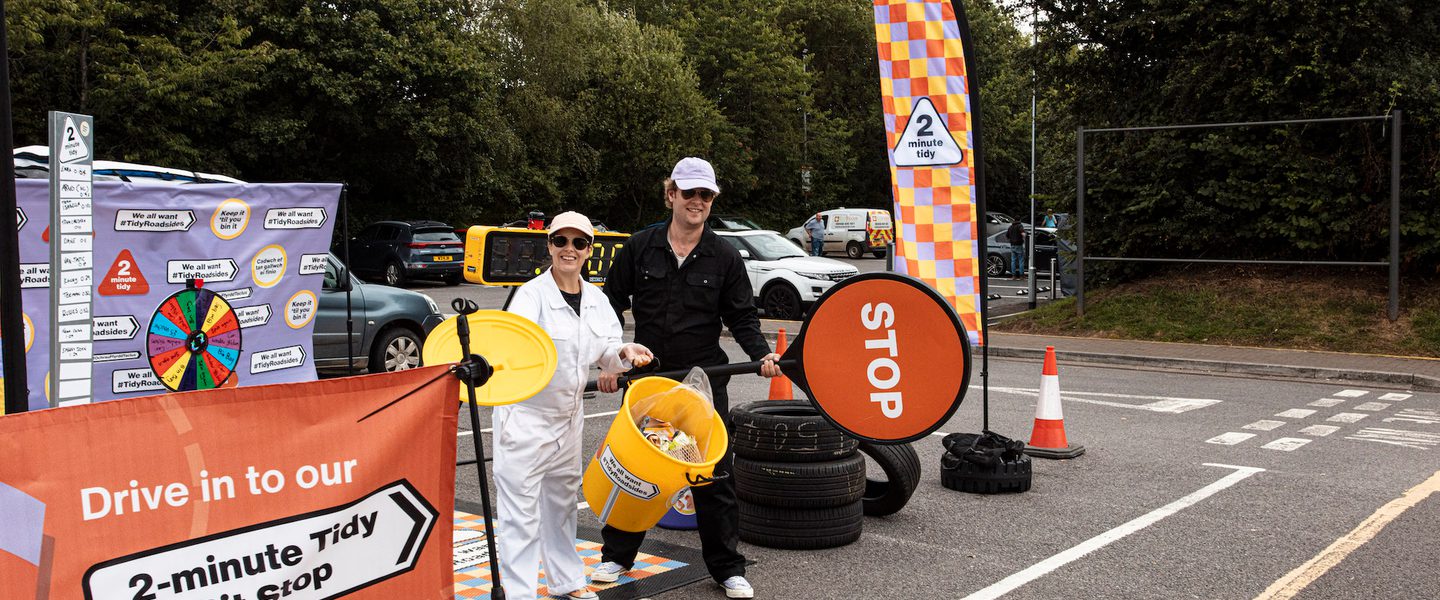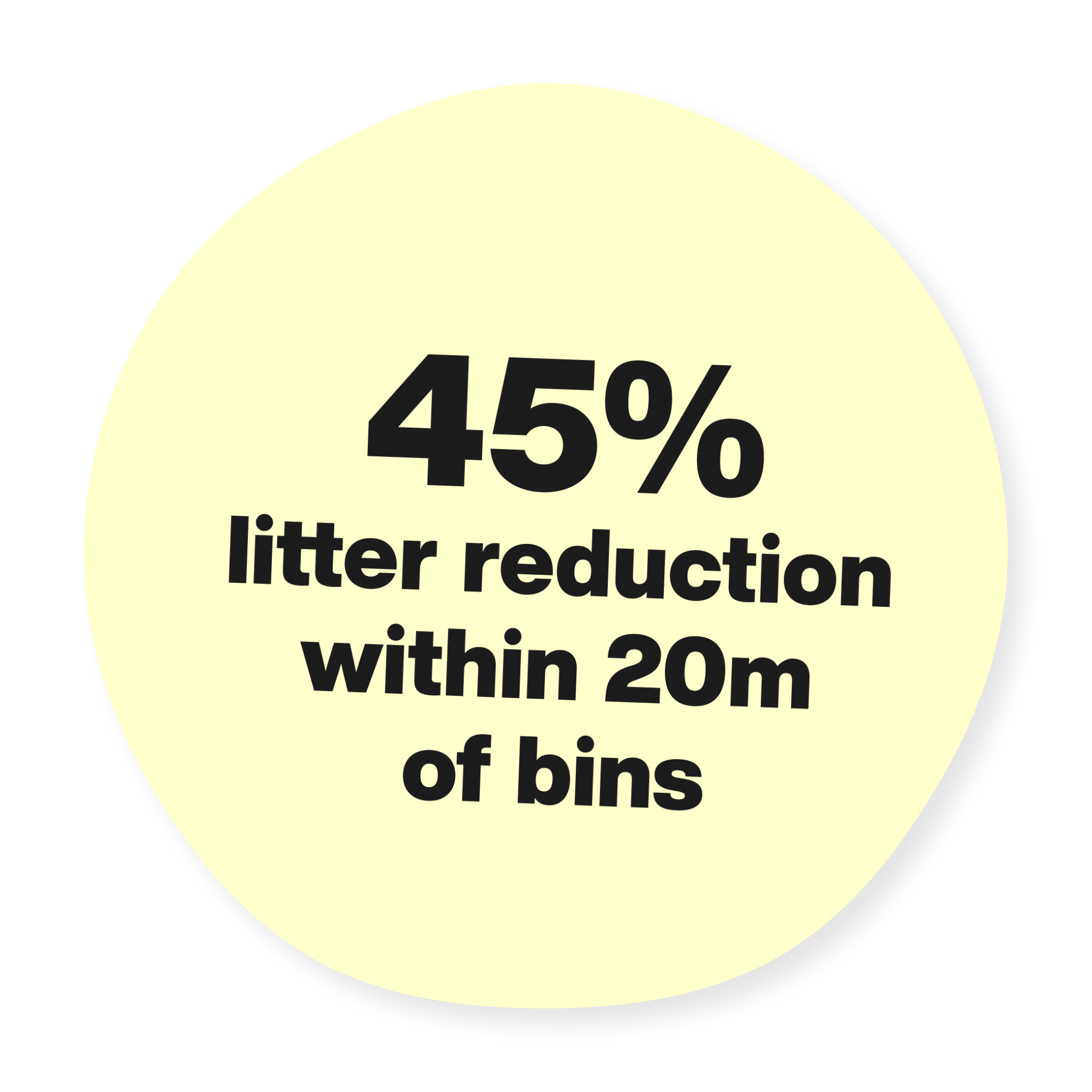Tidy Roadsides
Tackling roadside litter in Glasgow and Cardiff, with the support of scientific litter mapping
When did you last speak to someone about roadside litter at a party? Probably never is the honest answer. Rubbish on our roadsides is hardly the most interesting or sexy topic of conversation, but it is a big problem. As well as being an eyesore and harming our environment, it’s also an expensive issue: the UK spends £1 billion every year on cleaning up litter. Roadside litter is particularly hard to clear up.
Tidy Roadsides tackled roadside litter in Glasgow and Cardiff, with the support of scientific litter mapping by innovative tech company Ellipsis Earth. Our insights could help councils, agencies and those tackling roadside litter to focus efforts on litter hotspots, saving time and money.
Let's take the scenic route
Most drivers will tell you roadside litter doesn’t do much to enhance the scenery or landscape. If anything, it kind of takes the edge off. The effect it has on our environment and wildlife is much less visible though. Small animals get stuck in packaging, plastic breaks down into microplastics, and because roadsides are hard to clear, rubbish gets trapped for a long time. Eventually, like so much rubbish it may eventually blow into a river or waterway, where it is likely to join the 80% of all ocean plastics coming from land (Eunomia 2016).
Ellipsis Earth found that on average a piece of rubbish could have been dropped every 3 seconds on the main roads we’re targeting in Glasgow and Cardiff. That could’ve been 28,800 pieces of rubbish dropped per day! It’s time to drive down litter on our roads.
Is roadside litter driving you mad?
Our research on roadside litter shows:
-
It’s harder to tackle than other littering:
It’s more anonymous than on high streets, difficult to pick up due to traffic and vegetation.
-
Slow-speed locations are hotspots:
Rubbish is common where people slow down, e.g. at junctions, slip roads, traffic lights and roundabouts. In Cardiff, 20% of rubbish was concentrated at junctions, on just 2% of land. Junctions showed a 25 times higher rate of littering than open road verges, particularly on A roads.
-
It’s not always deliberate:
There’s some accidental or ‘tidy littering’ when people park, e.g., wind blowing packaging from car doors, or overflowing bins.
-
For some people tidy cars > tidy roadsides:
Our Big Boys Don't Litter research (2021) shows some young men chuck food and drink packaging to keep their cars clean.
-
Littered items might not be what you think:
Paper litter, cigarette butts and plastic fragments (often broken down from food and drink packaging) are the top three types of roadside litter. In Cardiff, half of all roadside litter is paper-based: napkins, receipts and paper packaging. Though paper is thought to be less environmentally harmful, their presence can attract more litter and is still costly to clean up.


So what did we do?
We made binning rubbish easier by trialling car-friendly bins for drivers stopping for a break, such as at retail parks and service stations, and gave existing bins a glow up with colourful vinyl.
We asked road users to hold on to their rubbish, in other words, ‘keep it ‘til you bin it’ - through different avenues:
- installing multiple road signs, billboard ads and lamppost banners around litter hotspots
- running a social media campaign targeted at local drivers
- playing a catchy radio ad on Heart Radio Glasgow and South Wales
- quizzing drivers how frequently rubbish is dropped on our roads to raise awareness of the issue – see their reactions
- setting up a #TidyRoadsides pop-up pit stop and asked people at car parks to do a two-minute tidy of their cars
What difference did we make?
8 weeks after the campaign, Ellipsis Earth measured litter levels again and found:
In Glasgow:
- Creating eye-catching bins around litter hotspots reduced litter by 45% within 20 metres of the bins, versus only 8% in non-hotspot locations. When a sign was also placed alongside the bin, this reduced litter by 58%.
- The combination of signage and bins together boosts the performances of each by 25%.
- Overall, data-driven interventions are 4-5 times more effective than untargeted interventions.
In Cardiff:
- The combination of billboards, signage and eye-catching bins together reduced littering by 23% at areas around motorway services in Junction 34 on M4, South Wales.
- In contrast, putting isolated signage didn’t make much difference to roadside littering.
Keep it 'til you bin it
Thanks to Ellipsis Earth, we have a roadmap (sorry) of how to create effective interventions and target specific hotspot locations. We have combined these insights and learnings into four recommendations to help local authorities and businesses to effectively tackle roadside litter:
-
Focus resources at slow-speed locations
Interventions not placed in litter hotspots make little difference, wasting valuable resources – time and effort. Focus on junctions, roundabouts and slip roads.
-
Place the right bin at the right moment
Provide bins where drivers stop, ensuring they are visible and easy to access. Encourage binning rubbish before getting on the road again.
-
Combine bins and signage for a bigger impact
Combining bins and signs together at hotspots helps them work 25% better than either on their own.
-
Work collaboratively
Roadside litter knows no boundaries. Highway agencies, councils, and businesses could create bigger impact by working together on consistent messaging at litter hotspots and providing bins where people consume food and drink.
Want to get in gear?
If you’re an organisation responsible for tackling roadside litter and would like to hear the full results, and more litter insights and learnings, watch our webinar recording here
Whether you’re driving in Cardiff, Glasgow or elsewhere, help keep #TidyRoadsides:
- Keep it ‘til you bin it and do a 2-minute tidy when you stop for a break
- Share #TidyRoadsides online and speak to others about it
- Pick up litter you see or join a local litter pick
Who did we work with for this campaign?
In Glasgow, the campaign focused on Paisley Road West and Dunbarton Road. Hubbub worked with Keep Scotland Beautiful to deliver the campaign, in collaboration with Glasgow City Council.
In Cardiff, Tidy Roadsides focused on major roundabouts and arterial main roads such as Culverhouse Cross and the M4 slip roads. Hubbub worked with Keep Wales Tidy to deliver the campaign, in collaboration with the Welsh Government, Cardiff City Council, Vale of Glamorgan Council, Welcome Break and Fidum Property Management Ltd.


This campaign is supported by the Starbucks 5p cup charge.
Looking to tackle litter on the go?
Check out how we're reducing litter on UK high streets with our new #PickYourSide Big Ballot Bins by encouraging people to vote on big questions with their litter.
Barbie or Oppenheimer? Love Island or Desert Island? Liam or Noel? Let your litter decide.
Curious to know more about Hubbub?
At Hubbub, we want to see a world where everyone makes choices that are good for the environment. Check out what we do and the difference we’re making.

